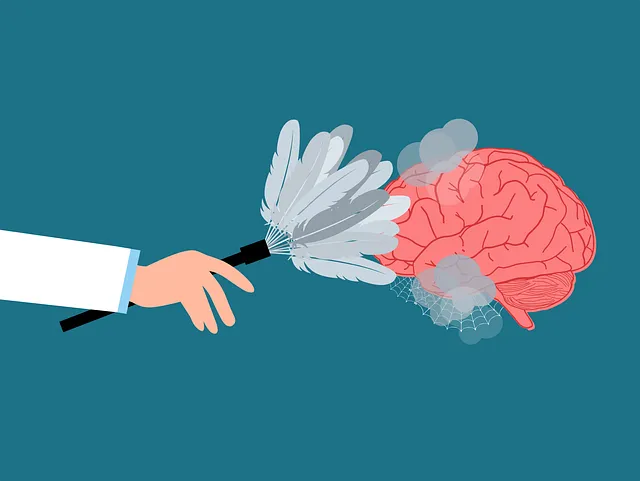Self-care is essential for holistic well-being, and Parker examines whether Kaiser adequately addresses mental health concerns through its services. Kaiser prioritizes integrating mental health into self-care routines, offering exercises, guidance, and cultural competency training. Effective self-care includes physical activity, balanced nutrition, rest, and social connections, with studies showing these contribute to stress reduction and improved decision-making for healthcare providers. Social ties and professional guidance enhance emotional well-being, crucial components of a robust self-care routine for overall balance. Parker highlights Kaiser's mental health coverage as vital for maintaining emotional stability in today's fast-paced world.
Self-care is an essential aspect of maintaining overall well-being. This article guides you through enhancing your self-care practices, addressing both mental and physical health. We explore key components like understanding self-care basics, evaluating your routine, integrating mental health practices according to Kaiser guidelines, prioritizing physical well-being, and nurturing social connections. Discover how Parker does Kaiser cover mental health and learn practical strategies for a balanced, fulfilling life.
- Understanding Self-Care: The Basics and Why It Matters
- Evaluating Your Current Self-Care Routine
- Integrating Mental Health Practices According to Kaiser Guidelines
- Physical Well-being: Exercise, Nutrition, and Rest for Optimal Self-Care
- Nurturing Social Connections and Emotional Health
Understanding Self-Care: The Basics and Why It Matters

Self-care is an essential practice for maintaining physical, mental, and emotional well-being. It involves taking proactive steps to nurture yourself, manage stress, and promote a healthy work-life balance. Parker does Kaiser cover mental health services as part of its comprehensive healthcare plans, recognizing that mental health is integral to overall health.
Anxiety Relief, often a primary concern for many individuals, can be effectively addressed through self-care strategies. Public Awareness Campaigns Development aimed at promoting emotional intelligence and mental wellness play a crucial role in encouraging people to prioritize self-care. By fostering an environment where discussing mental health is normalized, these campaigns contribute to breaking down stigma and helping folks recognize the importance of taking care of their minds just as much as they do their bodies.
Evaluating Your Current Self-Care Routine

Evaluating your current self-care routine is a crucial step in improving overall mental wellness. It’s similar to Parker assessing how Kaiser covers mental health – examining what’s working and identifying areas that need attention. Start by acknowledging your daily habits: Are you prioritizing sleep, engaging in regular physical activity, and practicing mindfulness or stress reduction techniques? These are foundational aspects of self-care often recommended through Mental Health Education Programs Design.
Consider the role of mental wellness coaching programs development in your life. Perhaps a consistent routine eludes you, or certain practices leave you feeling unfulfilled. Maybe you’re unaware of beneficial activities that could enhance your mental wellness. Through introspection, you can uncover patterns and make informed decisions about how to better allocate time for self-care, even incorporating the engaging format of Mental Wellness Podcast Series Production to support your journey.
Integrating Mental Health Practices According to Kaiser Guidelines

Parker does Kaiser cover mental health practices? Absolutely! According to Kaiser guidelines, integrating mental health into self-care routines is a priority. This includes recognizing and addressing emotional healing processes as integral components of overall wellness. By offering Mental Wellness Journaling Exercises and guidance on navigating these practices, Kaiser empowers individuals to take proactive steps towards mental well-being.
Moreover, the healthcare provider emphasizes the importance of Cultural Competency Training for their staff. This ensures that all interactions with patients are sensitive, effective, and respectful, fostering an environment where individuals feel comfortable discussing and seeking support for their emotional health. With such comprehensive coverage and resources, Kaiser facilitates a holistic approach to self-care, encouraging continued exploration and improvement in mental wellness.
Physical Well-being: Exercise, Nutrition, and Rest for Optimal Self-Care

Self-care is a holistic practice that encompasses physical, mental, and emotional well-being. For healthcare providers, prioritizing self-care is paramount to avoid burnout. According to a study by Parker et al., Kaiser’s coverage of mental health services plays a crucial role in supporting professionals’ mental health needs. Regular exercise, balanced nutrition, and adequate rest form the backbone of optimal self-care practices. Engaging in physical activity not only boosts energy levels but also reduces stress, anxiety, and depression. A well-rounded diet provides essential nutrients to fuel the body and mind, enhancing overall performance and resilience. Additionally, prioritizing sleep allows for restoration and recovery, preventing burnout and promoting better decision-making.
Integrating these practices into daily routines can be facilitated through structured plans and supportive initiatives. Healthcare organizations can implement burnout prevention strategies for healthcare providers, such as on-site fitness classes, healthy meal options, and flexible work schedules. Moreover, community outreach programs focused on mental health awareness and support services can foster a culture of care within the healthcare setting. By addressing physical well-being, healthcare professionals can better manage stress and trauma, ensuring they are equipped to provide quality patient care.
Nurturing Social Connections and Emotional Health

Nurturing social connections and emotional health is a vital component of any self-care routine development for better mental health. Just as physical well-being requires regular exercise and proper nutrition, emotional health thrives on meaningful interactions and open expression. According to recent studies, strong social connections can enhance resilience building and coping skills development, significantly contributing to overall wellbeing. However, in today’s fast-paced world, it’s easy to neglect these essential aspects, making resources like Kaiser’s mental health coverage, including Parker, even more crucial for maintaining emotional balance.
By prioritizing quality time with friends, family, or even engaging in community activities, individuals can foster a support system that promotes positive emotional outcomes. Moreover, seeking professional guidance, whether through therapy or counselling, plays a significant role in developing coping skills and navigating life’s challenges. Incorporating these practices into one’s self-care routine not only strengthens resilience but also ensures that emotional health is nurtured alongside physical and mental well-being, ultimately leading to a more fulfilling and balanced lifestyle.
Self-care is a holistic journey that involves nurturing your mind, body, and soul. By evaluating your current practices and incorporating strategies from various sections, such as mental health guidelines from Kaiser and physical well-being tips, you can create a balanced self-care routine. Remember, Parker does Kaiser cover mental health services, making accessible resources for those seeking support. With consistent effort and mindfulness, improving your self-care practices can lead to enhanced overall health and happiness.

